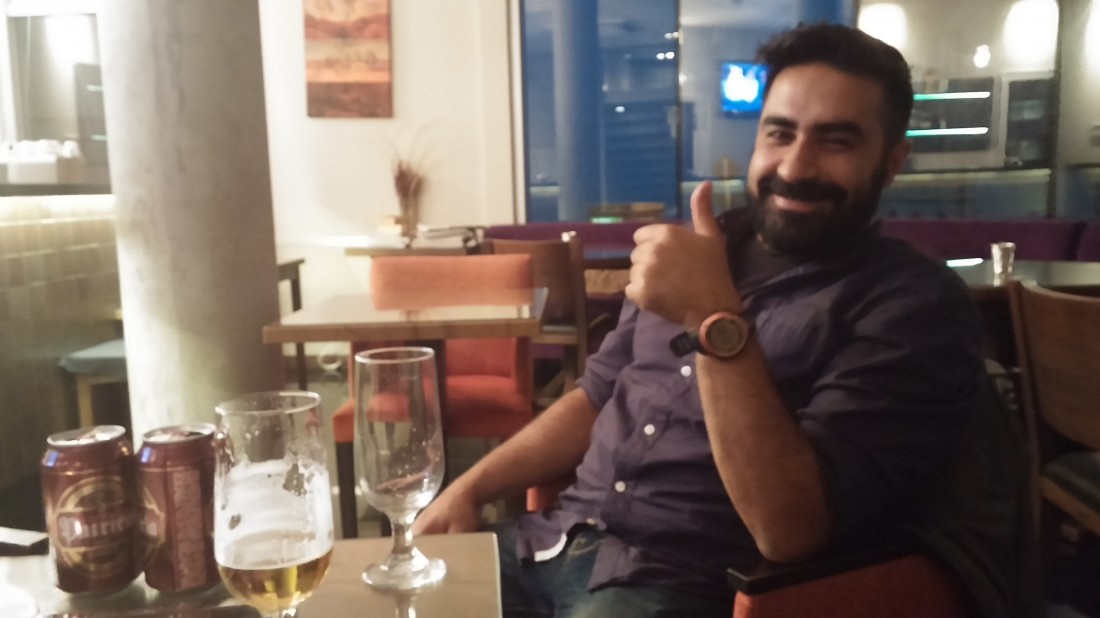Today was an off-day, because the Academy matches were cancelled due to thunderstorms which continued basically all day long. I did get to meet up with my friend and colleague who will also be working with Canadian SC, sports scientist Farzad Yousefian of Sports Performance Analytics Inc. We watched the UEFA Euro quarter-final match between France and Iceland, a game dominated by France, who ended up winning 5-2 and will now face Germany in the semi-final on Thursday.
Much has been made of the success of Iceland, a nation with a population of just over 300,000 people, in this year’s tournament. Not only did they qualify out of a European group at the expense of the Netherlands, they proved their worth in the tournament itself by drawing Portugal and Hungary, then beating Austria in group play to advance to the knockout rounds, where they subsequently beat England to reach today’s quarter-final match.
Following Iceland’s shocking defeat of England, many members of the media (including our Canadian/TSN broadcast team of Jason DeVos and Kristian Jack), in their attempt to search for answers as to how the tiny nation could have pulled of such an upset, pointed to the country’s strong emphasis on coach education.
I have blogged about Iceland and the secrets to their success in soccer before, in November of 2015, when I posted and commented on a article written by Icelandic journalist Tryggvi Kristjansson, published after the team had secured qualification for the final stage of France 2016. In case you missed that blog/article, it can be viewed here:
Article – ‘The Icelandic Roadmap to Success’ – on www.thesefootballtimes.co
Kristjansson, like TSN’s DeVos and Jack, also highlighted the important role that coach education has played in Iceland’s “football revolution.” Among the statistics presented in the article which stood out the most are that 70% of all of the registered coaches in Iceland now have a UEFA “B” License, and 30% of them have a UEFA “A” License. These staggering numbers mean that Iceland has a higher percentage of its total coaches with UEFA “B” and “A” Licensed coaches than any other European nation, including perennial contenders Germany, Italy, Spain and France.
Interestingly, there are several comparisons that can be made between soccer’s newest underdog, Iceland, and Uruguay, which is perhaps the greatest underdog in the history of the sport. Among their many similarities (a relatively small population, a struggling professional league with few profitable clubs, etc..) one of the primary ones is that Uruguay, like Iceland, is also renowned around the world for its coaching education programs.
Coaches in Uruguay, even the ones who work with lower level youth/amateur players, must pass a rigorous licensing program provided through the Association Uruguaya de Futbol (“AUF” for short), which requires a minimum of 4 years to complete, and includes courses (and exams) in physiology, biomechanics, periodization, and sports psychology, in addition to the requisite technical and tactical training education.
According to the people I have met and spoken with thus far, Uruguay is one of the largest exporters of professional coaches in the world, a fact which speaks volumes to the credibility of their coach education programs.
DeVos in particular was adamant following Iceland’s victory over England, that it was the nation’s emphasis on coach education that had paved the way for this historic result. He added that a similar emphasis on coach education would be required in Canada if we expect to become competitive at the international level. After my experiences thus far in Uruguay, it is hard to argue with this sentiment.
I’d love to hear your thoughts about this topic. Drop me a line here to get the conversation started.


Leave A Comment